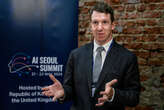Work is not just an opportunity to display your skills and talents, but also an opportunity to show others you can bring value. That includes being a good organizational citizen and team player and helping others. Academic reviews show that “being rewarding to deal with”—which is mostly a function of your likability and social skills (including your emotional intelligence or EQ)—is one of the most consistent predictors of employability and career success, across cultures, industries, and organizations.
So, you cannot underestimate the importance of harnessing a positive reputation at work. More often than not, this will require a delicate balance between seeming professional and authentic. Contrary to popular belief, the latter is not achieved by just being yourself or not worrying about what others think of you but rather by harnessing your social skills and being more of a method actor or character who is in a role. The key is that your work persona comes across as genuine rather than fake, and the key to achieving this is being consistent, focusing on others, and showcasing empathy.
There are unintended costs to being too immersed in your work persona or appearing to take yourself too seriously at work, which is why infusing a bit of your personality, character, and personal touch in your interactions with others can be helpful.
Here are five negative consequences of taking yourself too seriously at work, according to research.
You are unlikely to elicit trust in your coworkers
People want to know who you are. Even though they may never find out (let’s face it, it’s already hard to work out who we are), they want to feel confident that they know you. One of the easiest ways to achieve this is to inject warmth and empathy into your dealings with them. If you act too cold, without giving anything away, they will assume you are hiding your real self, decreasing their trust in you.
Opening up, being vulnerable, and focusing less on showcasing your strengths or being in performance mode, will make you more real and rewarding to work with.
You may miss out on camaraderie and bonding
Decades of research into employee engagement show that one of the principal drivers of job satisfaction and belonging is the experience of camaraderie with our colleagues. That is, work is not just an opportunity to get ahead, but also to get along. And to many people, the best part of work is the relationships, which often transcend our formal ties to organizations to be upgraded into long-lasting friendships. So, being too focused on your performance, your career, and the formal aspects of your role may lead to neglecting this important aspect of work—and remember, even if it doesn’t matter too much to you, it still matters to others.
Your work setbacks will be harder to tolerate
Most people inhabit multiple selves, but there are rich individual differences in the number of dimensions our self or identity has. Research on self-complexity shows that being too immersed in your career, and seeing your work or professional self as the salient aspect of your identity, will enhance the highs but also the lows you experience at work.
So, when work is your life, and your career takes precedence over other nonwork activities, experiences, and people, you risk being hit much harder when things aren’t going your way at work. Research shows that overachievers, workaholics, and perfectionists are all more vulnerable to burnout (which now affects three in four workers at some point in their lives).
You may be seen as a politician
Being too serious means not giving away how you feel and what you think, which is common among highly political people and corporate politicians. So, even if you are not into office politics, acting overly serious and formal will give you a bureaucratic, hierarchical image.
Most of the formal levers that improve your career promote status-seeking behaviors, but what impresses your superiors is often disregarded or disliked by your peers and subordinates. Conversely, seeming genuinely interested in others when you have little to gain from it, will make you seem real, kind, and empathetic.
Organizational politics may work against you
Ironically, the more you focus on doing your job properly and delivering high levels of task performance, the more you may neglect the “performative” aspects that underpin job performance such as getting others to know you and like you as a person, rather than for what you produce at work.
While in an ideal world, you would be hired and promoted for what you deliver, the reality is that people who deliver less will generally be fast-tracked for promotion and have more access to resources and opportunities if they are smart social networkers and display strong political skills. Crucially, you will only do this effectively if you are subtle, seem interested in others, and add some humor to the mix.
In a way, you will be taken more seriously if you don’t yourself too seriously. This will increase your chances of having a reputation as someone genuine, humble, and open to others, all of which elicits trust and encourages others to open up and reciprocate similar attitudes and behaviors.
In the end, even if you are great at your job, ensure that you bring good vibes and energy to others and that they enjoy interacting with you. Some people give you energy, and others drain and take it away from you. In the words of Oscar Wilde: “Some bring happiness wherever they go; others, whenever they go.” It’s important to be part of the right group—your colleagues and your career will appreciate it.










No comments